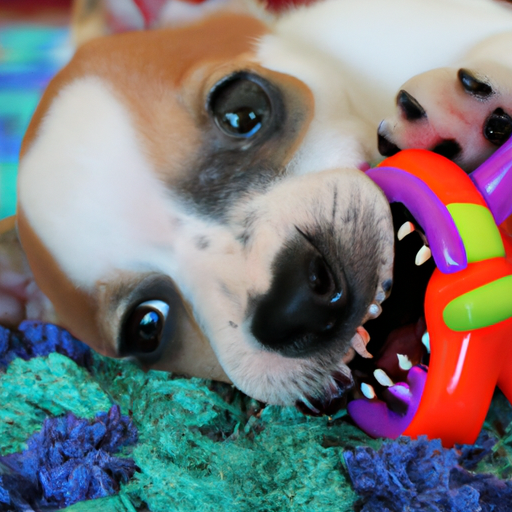Introduction
As a caregiver, you’re probably aware that just like human babies, puppies have a time when they lose their baby teeth. This is a natural part of their growth and development, but it can also be a challenging time for both you and your furry friend.
Understanding Your Puppy’s Dental Development
Puppies are typically born without teeth. At around 2-3 weeks, their baby teeth, also known as deciduous teeth, begin to come in. They have 28 of these teeth and by the time they’re 6-8 weeks old, all should be in place.
Around the age of 3-7 months, puppies start losing these baby teeth, making way for their permanent, adult teeth. They’ll end up with 42 of these by the time they’re about six months old.
Spotting the Signs of Teething
Like humans, puppies experience discomfort when their teeth are coming in. Some signs your puppy might be teething include:
- Excessive chewing
- Drooling
- Changes in appetite
- Irritability
- Swollen, red gums
Tips for Soothing a Teething Puppy
-
Provide Chew Toys: Chew toys can help alleviate the discomfort your puppy is experiencing. Make sure the toys are safe and appropriate for their size.
-
Use Cold Items: Cold can help numb the gums and reduce inflammation. Try giving your puppy a frozen treat or a cold washcloth to chew on.
-
Comfort Your Puppy: Extra cuddles and gentle massages can also help your puppy feel better during this difficult time.
Dental Health Tips for Puppies
Maintaining your puppy’s dental health is crucial. Here are a few tips:
- Start dental hygiene routines early
- Feed them high-quality puppy food
- Schedule regular vet check-ups for dental health
Potential Problems
While teething is normal, there are some potential problems you should be aware of:
-
Retained Baby Teeth: Sometimes, a baby tooth doesn’t fall out when the adult tooth comes in. This can cause problems and might need to be removed by a vet.
-
Broken Teeth: Puppies love to chew, and they might break a tooth on something hard. Broken teeth can be painful and lead to infections.
When to See a Vet
If you notice any of the following signs, it’s time to see a vet:
- Persistent bad breath
- Difficulty eating
- Excessive drooling
- Swelling or bleeding gums
FAQs
Q: At what age do puppies lose their teeth?
A: Puppies start losing their baby teeth around 3-7 months of age.
Q: How can I help my teething puppy?
A: Provide safe chew toys, use cold items to soothe their gums, and give them plenty of comfort and cuddles.
Q: When should I take my puppy to the vet for dental issues?
A: If your puppy has persistent bad breath, difficulty eating, excessive drooling, or swelling or bleeding gums, it’s time to see a vet.
Q: What are the potential problems with puppy teething?
A: Some puppies might retain a baby tooth or break a tooth while chewing. Both can cause problems and might need to be addressed by a vet.
Remember, as a caregiver, your role is essential in helping your puppy navigate through this challenging period. With love, patience, and proper care, your puppy will soon have a healthy set of adult teeth.



